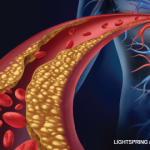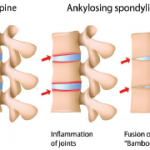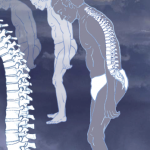Abatacept, anti–IL-6R-antagonists, and anakinra, an IL-1-receptor antagonist, have been shown not to be effective.
Rituximab might be one avenue that deserves to be explored further, he said. A study—involving 10 patients who had never tried a TNF blocker and 10 with whom a TNF blocker had failed—showed promise among the TNF-naive patients. In that group, at Week 24, 50% had achieved an ASAS20 response, 40% an ASAS40 response, and 50% a BASDAI50 response.7
“I think the data would justify to go the next step, to do a small, placebo-controlled trial,” he said.
In his own lab, there are plans to further explore ustekinumab, an interleukin (IL) 23 blocker, after a trial of 20 patients with active AS showed benefit, Dr. Sieper said. The patients had shown an inadequate response to two more NSAIDs taken for at least two weeks or demonstrated an intolerance or contraindication to them.
In the pipeline, Dr. Sieper said, are several studies that are ongoing or are about to begin. They include trials on anti–IL-17 and anti–IL-23 drugs, as well as apremilast, a phosphodiesterase inhibitor, and tofacitinib, a JAK inhibitor.
There is a lot of activity, he said. But, he added, “TNF blockers are still the only proven biologic to be effective in AS if conventional treatment fails.”
Thomas Collins is a freelance medical writer based in Florida.
References
- Sieper J, Lenaerts J, Wollenhaupt J, et al. Efficacy and safety of infliximab plus naproxen versus naproxen alone in patients with early, active axial spondyloarthritis: Results from the double-blind, placebo-controlled INFAST study, Part 1. Ann Rheum Dis. 2013 May 21. [Epub ahead of print]
- Wanders A, Heijde Dv, Landewé R, et al. Nonsteroidal antiinflammatory drugs reduce radiographic progression in patients with ankylosing spondylitis: A randomized clinical trial. Arthritis Rheum. 2005;52:1756-1765
- Spiro AS, Beil FT, Baranowsky A, et al. BMP-7-induced ectopic bone formation and fracture healing is impaired by systemic NSAID application in C57BL/6-mice. J Orthop Res. 2010;28:785-791.
- de Vries MK, Wolbink GJ, Stapel SO, et al. Decreased clinical response to infliximab in ankylosing spondylitis is correlated with anti-infliximab formation. Ann Rheum Dis. 2007;66:1252-1254.
- de Vries MK, Brouwer E, van der Horst-Bruinsma IE, et al. Decreased clinical response to adalimumab in ankylosing spondylitis is associated with antibody formation. Ann Rheum Dis. 2009; 68:1787-1788
- Rudwaleit M, Claudepierre P, Wordsworth P, et al. Effectiveness, safety, and predictors of good clinical response in 1250 patients treated with adalimumab for active ankylosing spondylitis. J Rheumatol. 2009;36:801-808.
- Song IH, Heldmann F, Rudwaleit M, et al. Different response to rituximab in tumor necrosis factor blocker-naive patients with active ankylosing spondylitis and in patients in whom tumor necrosis factor blockers have failed: A twenty-four-week clinical trial. Arthritis Rheum. 2010;62:1290-1297.


